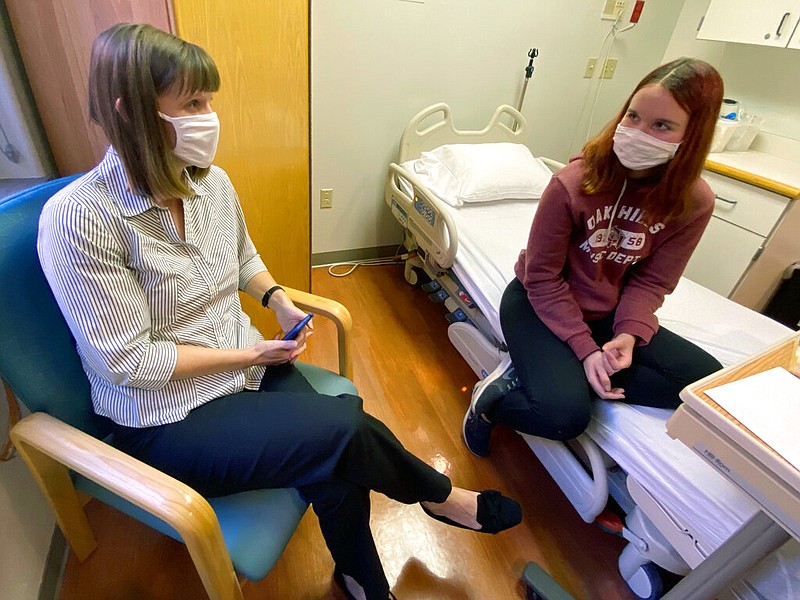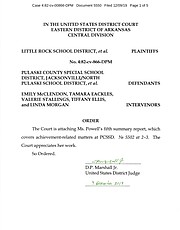Health care workers and first responders, followed by vulnerable older adults living in group settings, will be first in line when supplies of the highly anticipated COVID-19 vaccine reach Tennessee, according to a preliminary state plan released Wednesday.
Although officials do not know how many vaccines Tennessee will receive or when, the state department of health says it will get 2% of the nation's total vaccine allotment from the U.S. Centers for Disease Control and Prevention.
Tennessee's plan states that 5% of the state's supply will be distributed equitably among all 95 counties and 85% will be given to the counties based on their population sizes. The remaining 10% will be reserved by the state for use in "targeted areas with high vulnerability to illness and death from the virus," according to a news release from the Tennessee Department of Health.
Because initial supplies of a vaccine are likely to be extremely limited, the state plan prioritizes which populations will have access to the vaccine first based on risk of contracting and spreading the virus, as well as risk of serious disease and death due to COVID-19. Within each population group, individuals at highest risk - such as those with underlying illnesses - will have the first opportunity to be vaccinated.
Department of health officials emphasized that the plan is a draft that could change based on what type of vaccine is approved, when it will arrive and how many doses are available. It's likely that the state's allotment won't arrive all at once but rather be received in small shipments over time, which officials say will also affect distribution plans.
Shannon Stephenson, CEO of Cempa Community Care, is the community testing chair of the COVID-19 Joint Task Force and has been working to help formulate local vaccine distribution plans once supplies reach Hamilton County.
"It's important for the public to understand that the first doses of vaccine will be available on a very limited basis and provided to populations at highest risk for illness and death, which include frontline health care workers, especially those in hospitals that treat patients with acute COVID-19, and our EMS and law enforcement first responders," Stephenson said in an email. "As vaccines are produced in greater quantities, we will be able to widen the availability of those vaccines to larger groups of Tennesseans, according to risk."
Tennessee plans to follow four allocation phases, starting with frontline health care workers and first responders, followed by outpatient health care workers and then people with high-risk health conditions and older adults in group care settings.
Phase two will begin once supplies become more readily available, starting to reach teachers, child-care staff, people with moderate-risk chronic diseases, older adults, critical infrastructure workers and people living in group settings, such as jails or rehabilitation facilities.
Phase three includes young adults, children and other industry workers, and everyone else will gain access during phase four.
The plan does not factor in whether a person has already been infected by the coronavirus, since there is little evidence that prior infection results in long-term immunity, according to the department of health.
If demand far exceeds supply, the department may need to scrap its population-based distribution plan in order to allocate vaccines to areas of the state with the most COVID-19 cases.
Hamilton County Health Department Administrator Becky Barnes said in an email, "We are in communication with the state on an almost daily basis and are making flexible plans to address different scenarios."
Officials at the state department of health are hopeful that any resident who wants a vaccine will have access to it by summer 2021.
"We assure Tennesseans that safe, effective and approved COVID-19 vaccines will be released in Tennessee when they are available to reduce the spread of the virus," Tennessee Health Commissioner Dr. Lisa Piercey said in the news release. "Our vaccine distribution plan will be modified as more is understood about the virus and the availability of approved vaccines currently in development."
Factors that could complicate distribution include if the vaccine must be stored at extremely low temperatures or if it's approved for people age 12 and older instead of only age 18 and up.
Designated providers in each county - including hospitals, pharmacies and clinics - ultimately will be responsible for vaccinating priority populations. The state's plan is to enroll hospitals with emergency departments and intensive care units that treat the sickest patients first.
The state will also deploy "vaccination strike teams" to conduct on-site vaccination events for at-risk groups that may not have access to another vaccine provider.
So far, 1,104 providers, with at least one from every county in Tennessee, have expressed interest in becoming vaccine providers, according to the state plan.
Stephenson said that if Cempa, a community health center, becomes a vaccine administrator, it would likely be one of the last places to become a designated provider due to the many limitations, such as storage and reporting requirements, as well as the requirement of a second dose.
"[The state's] priority is to enroll hospitals, and that makes sense given the storage requirements," Stephenson said.
The Tennessee Department of Health submitted its initial draft of the distribution plan to the U.S. Centers for Disease Control and Prevention last week, according to the release.
The announcement comes as coronavirus cases and hospitalizations are surging across the state, country and world.
On Wednesday, the Hamilton County Health Department reported 111 new COVID-19 cases - the most new cases reported in a single day since August.
There were 84 patients hospitalized for the coronavirus, including 20 in intensive care. Hospitalization increases continue to be fueled by an influx of patients from outlying counties. Only 26 of the patients now in Hamilton County hospitals are local residents.
Contact Elizabeth Fite at efite@timesfreepress.com or follow her on Twitter @ecfite.

